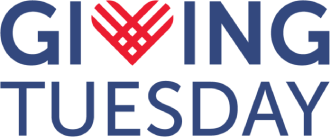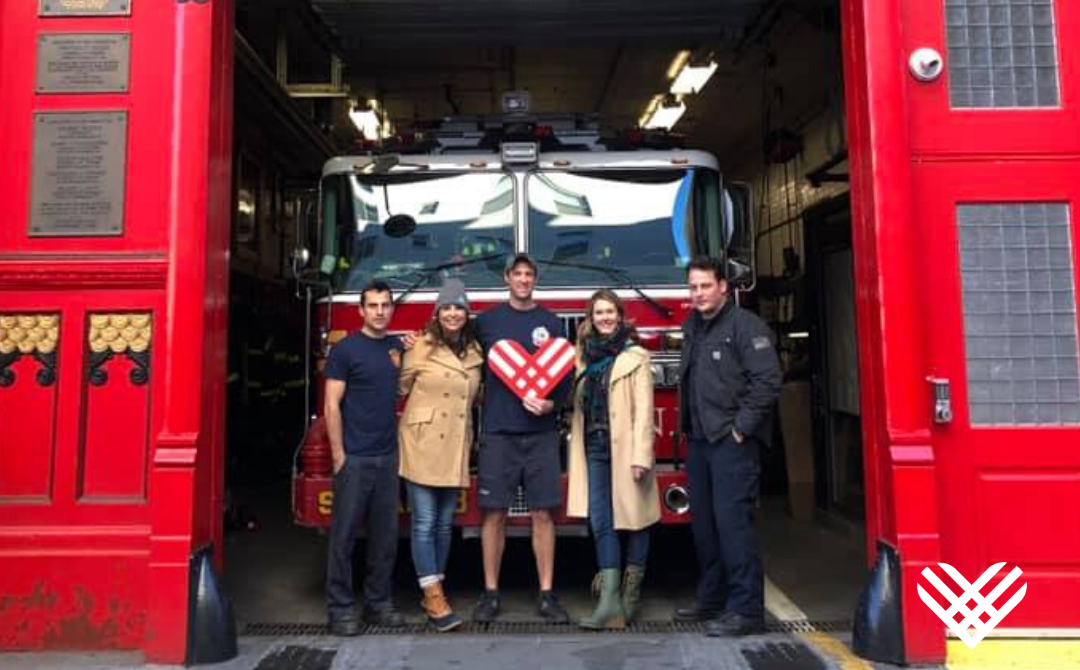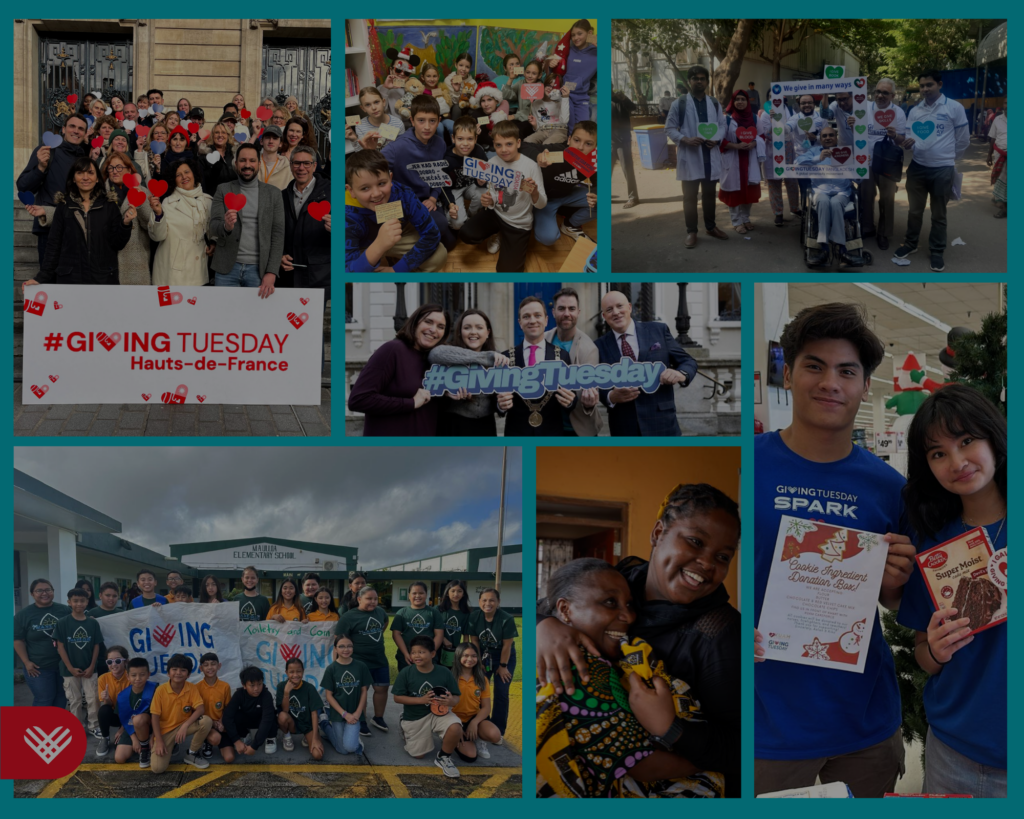By Asha Curran, CEO, GivingTuesday
It’s hard to escape the onslaught of disturbing news about the spread of COVID-19 and its impact around the world. It’s also hard to escape the growing feeling of isolation as we avoid public spaces, celebrations, crowds, religious services–in other words, other humans and all the ways we are used to gathering in community. Even a few weeks in, it’s obvious to all that we’re facing a huge challenge to social cohesion, and to our sense of personal agency–what can one person do in the face of a crisis this big?
But it is most tempting to retreat to protect ourselves and our nearest and dearest, it is also most important to remember how our generosity can impact our neighbors, community and thousands of others who we’ll never meet, but who are suffering and fearful, too. We may need to stop shaking hands, but we can still reach out, substantively and emotionally.
It is in the midst of this social distancing that we need to commit more than ever to drawing together. We can exercise our power as citizens by creating and spreading ideas–of how to help, how to heal, how to create new kinds of connection and community–that can be rapidly adopted across networks and borders. Nothing will be more critical than widely distributed, deeply networked grassroots generosity. It’s not about size: we all have something to give, and every act of human consideration and kindness matters.
And inspiringly, we already see this happening: people creating and sharing creative ideas for helping one another through the crisis.
Generosity is a powerful countervailing force to isolation and loneliness, which already are prevalent in our society and bound to worsen now. Our ability to give help and hope gives us agency, dispelling feelings of powerlessness. It makes us measurably happier, dispelling feelings of despair. It reminds us we can make a meaningful impact, if we are intentional.
A few places to start:
Support Populations Who Will Be Hardest Hit
Certain groups will suffer compound impact from not only the virus itself but the measures taken to protect the public. Cancellation of events, the impact on travel and tourism, social distancing and more will leave many hourly and gig workers, single parents, caregivers, and those without insurance or paid time off in potentially dire circumstances. There are things we can do to ameliorate some of these effects now–crowdfunding efforts are underway, for one–but we can also advocate for policies and laws that make it less likely that anyone ever has to live that close to the edge of disaster. We can both reach out to those at risk of falling through the cracks and simultaneously ask ourselves why anyone is so perilously close to the cracks at all. And we can continue advocating once this crisis has passed.
Remember Those on the Front Lines
Doctors, nurses, hospital staff, cleaning crews as well as first responders will be maxed out in the coming weeks. Support relief organizations who serve these workers, and make sure you’re only calling on them when absolutely necessary. Start a thank-a-thon by writing letters and cards to send to your local hospital, shelter, police station, etc. — this is also a great way to keep kids busy and thoughtful during school or event cancellations. (It’s worth including your local teachers in this group as well–whether or not you have school-aged children.)
Support For-Purpose Organizations
At the best of times, the nonprofit sector works tirelessly to mitigate suffering and catch those who too often fall through the cracks. This is not the best of times, and they will be working even harder, and in even more difficult conditions. Large swaths of the population who are normally at risk are now even more so–gig workers with no insurance or paid leave, those experiencing homelessness and hunger, those already isolated and infirm. These organizations who serve these populations and help those who fall on hard times will certainly need our support.
Find New Ways to be Neighborly
While we often go about our routines and may not engage in much day-to-day conversation, now would be a great time to do the opposite. If available, use your neighborhood or building communications system (an email list, bulletin board, Slack, or social media group) to reach out with an encouraging note or offer extra supplies, particularly to the elderly and those who may have limited resources. Leave extra canned goods, cleaning supplies, unopened medical supplies in a common area or on someone’s doorstep to limit personal contact. Add a handwritten note to let them know they’re not alone. Call a neighbor, friend or loved one and talk for a short while. Even if you can’t offer to do more, simply the sound of your voice will combat feelings of isolation and loneliness–on both ends of the conversation.
Deploy your skills and your networks for good
Now is the time to use our interconnectedness to scale up generous efforts. If a lone social worker, for example, figures out a way to help a community member in crisis, perhaps through pro-bono virtual counseling sessions, that’s wonderful; if that social worker activates a nationwide network of social workers to implement a plan in dozens or hundreds of communities, that’s a significant, systemic intervention. Public health agencies will be overwhelmed; these kinds of efforts will need to be grassroots. What associations, clubs, or networks do you belong to that you can inspire to rally around a great idea?
Practice Simple Kindness
Kindness is an asset. We can choose to give it away, or not. Practicing kindness is an act of generosity. It’s a simple thing, but can be the most difficult to remember and act upon when we’re all feeling stressed. In times of crisis, our feelings of frustration, fear, anger and paranoia can get the best of us. A smile, a wave, a kind word can go a long way. Take a stand against any bias or racism you see associated with the virus. Reach out online to share encouragement, a compliment, reliable information and positive energy. At the very least, perhaps catch yourself before speaking out in anger.
In these moments of crisis and seeming powerlessness, human ingenuity shines through. It is when everything seems to be falling apart that we have an opportunity: to get through it together, and to put it back together the way we want it to be, not the way it was. As the crisis deepens it will bring into stark relief the failings and gaps of the systems and structures of our society. We have the chance to emerge from it with a commitment to bridging those gaps, protecting the vulnerable, and caring for one another–opting for generosity in times of calm and turmoil alike.
Translations:
Adopta el Distanciamiento Social pero lucha contra la División Social




